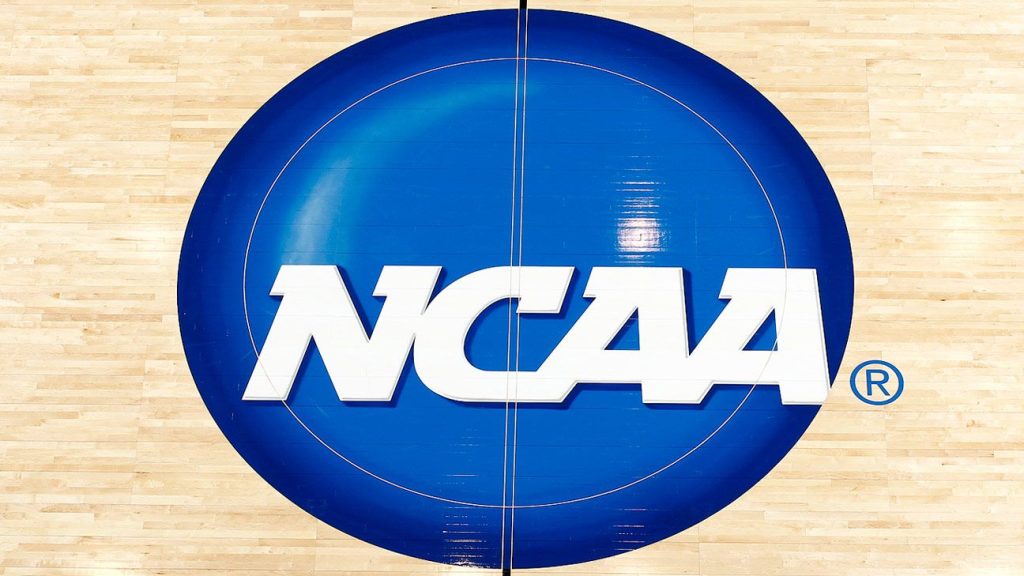PHILADELPHIA — A U.S. appeals court dealt the NCAA a blow Thursday, ruling that college athletes who act primarily for the benefit of their schools can be considered employees entitled to a salary under federal wage and hour law.
In the latest challenge to the NCAA’s long-held idea of amateurism in college sports, the court said a test should be developed to distinguish between students who play college sports for fun and those who make efforts to “cross legally recognized lines into their work.”
“With professional athletes being the clearest indicator, playing sports is indeed a remunerative occupation,” U.S. Circuit Judge L. Felipe Restrepo wrote. “Ultimately, the test is whether the cumulative circumstances of an athlete’s relationship with his or her university or the NCAA reveal the economic reality of an employer-employee relationship.”
In a concurring opinion, Judge David J. Porter questioned the difficulty of such a process, noting that roughly 200,000 students compete on roughly 6,700 Division I teams. The NCAA had wanted the case dismissed, but will now send it back to the judge for fact-finding.
The ruling comes on the back of a 2021 Supreme Court ruling that forced the NCAA to amend its rules to allow athletes to profit from their name, image and likeness. In May, the NCAA unveiled a roughly $2.8 billion revenue-sharing plan that could return millions of dollars directly to players by next year.
The Division I players and former players who filed the lawsuit in Philadelphia are seeking more modest hourly wages on par with those earned by their peers in work-study programs, arguing that the universities are violating fair labor practices by not paying them for the time they put in for sports, which average more than 30 hours a week.
Paul McDonald, an attorney representing the plaintiffs, suggested that participating in NCAA sports could allow athletes to earn $2,000 a month or $10,000 a year, and he said many students need that money for daily living expenses.
“The idea that college athletes can’t be both students and employees is just not true when we have student employees on campus,” McDonald said Thursday. “The idea that athletes aren’t held to the same standards as employees is just not credible.”
After a district judge refused to dismiss the case, the Indianapolis-based NCAA asked the appeals court to stay the case. A three-person hearing panel heard arguments in February.
The defendants include the NCAA and its member schools, including Duke University, Villanova University and the University of Oregon. An NCAA spokesman did not immediately respond to a message seeking comment Thursday.
The unanimous Supreme Court decision that triggered the NIL payments lifted a ban on college compensation other than full scholarships. Schools that recruit top athletes can now offer tens of thousands of dollars in education-related perks, including study abroad programs, computers and graduate school scholarships.
“Tradition alone cannot justify the NCAA’s decision to launch a massive fundraising operation at the expense of student-athletes who are not being fairly compensated,” Justice Brett Kavanaugh wrote in a concurring opinion in 2021. “The NCAA cannot afford to ignore the law.”
But the case did not resolve a key issue before the U.S. Court of Appeals for the Third Circuit: whether college athletes are employees entitled to a direct salary.
Baylor University President Linda Livingston said at last year’s NCAA convention that the model would make coaches the bosses of their players.
“Turning student-athletes into employees would have far-reaching, shocking and potentially devastating effects across the college sports community,” said Livingston, the NCAA Board of Governors chairman. “Congress must recognize the special relationship between student-athletes and their universities.”
The relationship has come under increasing scrutiny.
In 2021, a top lawyer for the National Labor Relations Board said in a memo that college athletes should be treated as employees of their schools.
Players have also taken to social media to demand that NCAA member schools receive a cut of the hundreds of millions of dollars they make from sports, including a campaign launched on the eve of the 2021 NCAA basketball tournament under the hashtag “#NotNCAAProperty.”
In its competition, the NCAA compared athletes to unpaid students who participate in theater troupes, orchestras and other campus activities.
McDonald said these types of campus groups are student-led, but athletes have their hours managed by their coaches, similar to employment.
“The most controlled groups on any campus are the student-athletes,” he said earlier this year.


